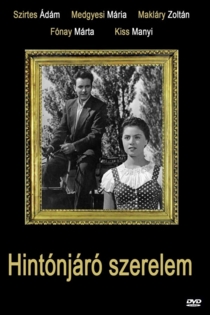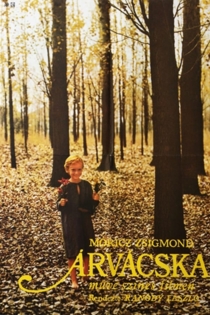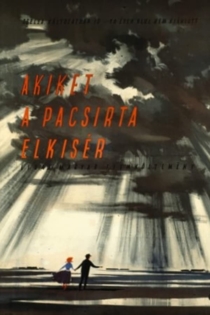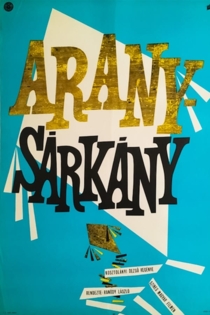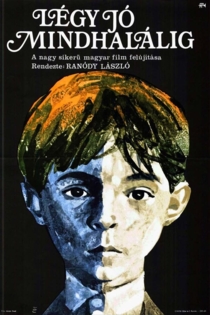
László Ranódy
1919 - 1983A tettes ismeretlen
László Ranódy
Andor Ajtay, Margit Bara
Life is on in the old house of Vizváros. Kids play on the ground. The adopted son of the janitor, Matyi, is hopelessly in love with Juli. He would like to emigrate to America with her. She prefers Janó, the driver, a great womaniser.
Danse Macabre
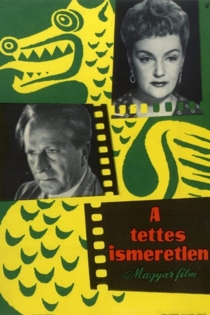
Pacsirta
László Ranódy
Antal Páger, Klári Tolnay
Based on a novel by Dezso Kosztolani, this Hungarian drama is set at the turn of the 20th century. A young, homely woman lives at home with her mother and retired father. Because of all the care the girl provides for her parents, the couple becomes detached from the world outside their home. When the girl leaves for a short visit to her uncle's home, the parents realize the extent of their separation from society and their selfish feelings toward their own daughter.
Skylark
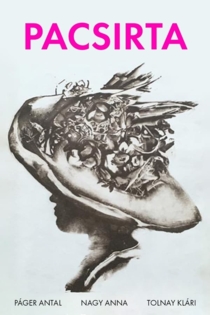
Szakadék
László Ranódy
Margit Bara, Imre Sinkovits
Nagy István, the formerly poor peasant boy returns to his native village as a teacher. His conviction is that the abyss between rich and poor can be diminished by good will. The rich Böröcz Horváth Klári returns his love, and also Böröcz Horváth is willing to help the poorest family, the Bakos. Bakos Jóska, who was sent to serve the tough Böröcz Horváth as a payment, dies of an infected wound and the people in the village hold the teacher liable as well. Nagy István realises, that the abyss cannot be ceased, what is more, it is impassable. He breaks up with his fiancée and stands by the side of the poor.
Abyss
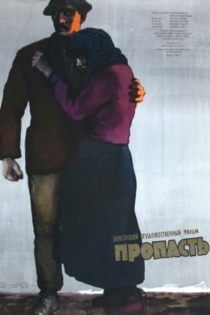
Lúdas Matyi
László Ranódy, Nádasdy Kálmán
Imre Soós, Erzsi Pártos
Первый венгерский цветной фильм был поставлен на основе популярной народной сказки (в литературной обработке Михая Фазекаша). 1820-е годы. Добрёги, надменный жестокий помещик конфисковал на ярмарке гусей у юноши-пастуха Матьи Лудаша и приказал высечь парня. Обиженный юноша не смирился с оскорблением и ловко проучил негодяя.
Goose Boy
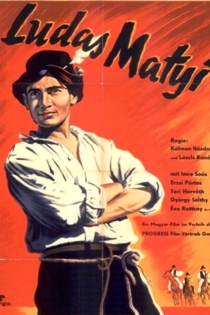
Színes tintákról álmodom
László Ranódy
Mari Törőcsik, Ádám Kosztolányi
The director has intertwined an old amateur film, shot about the Kosztolányi-family, with the adaptation of three short stories of the author. Just like the actors of the amateur film, the main characters of the three short stories are making desperate attempts to appear easy-going and self confident in the eyes of the world. In the hero of Key, the father who at home appears to be an unapproachable, important person, is suddenly revealed to be an insignificant and humiliated office clerk before his son. In Bathing, it is the severe, "tough guy" father who does not know himself and is therefore depressed and causes an irredeemable, tragic accident. In China Vase, the important guest invited with great reverence breaks into pieces the only treasure of the poor clerk couple with a nonchalant gesture. Yet, there is hope: after many years, the woman tells the mystically enlarged story with appropriate self-irony.
I Dream about Colours

Föltámadott a tenger
László Ranódy, Mihály Szemes
Lajos Básti, János Görbe
March 15, 1848; the revolution breaks out in the town of Pest. Yet at café Pilvax, in among he revolutionary youth, there is the informer of the imperial court as well. Hearing the news of the attack led by Jellasics, the inhabitants of the villages pour into the national army, and Hajdú Gyurka also escapes from his landlord. Petőfi is there at the camp of the revolutionaries, raising them to enthusiasm with his poetry.
The Sea has Risen
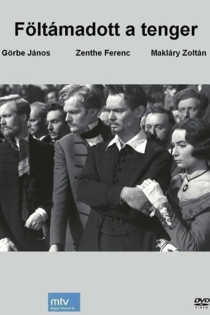
Hatholdas rózsakert
László Ranódy
Klári Tolnay, László Tahi Tóth
Aunt Ilka, who likes company, opens her house standing in the middle of a six-acre rose garden in the little town for the golden youth of the town. As a result of her benevolence, the tenants are in the position to adore not only the roses but a nice bunch of to-be-married girls of the town.
A Rose Garden of Six Acres

Hintónjáró szerelem
László Ranódy
Ádám Szirtes, Mária Medgyesi
The top management of the co-operative in the rural community at Lake Balaton goes on coaches everywhere to irritate Mrs. Peczöli, the snobbish wife of the only individual farmer. Peczöli would readily join the co-operative, should it not oppose his apple improving experiments.
Love Travelling a Coach
